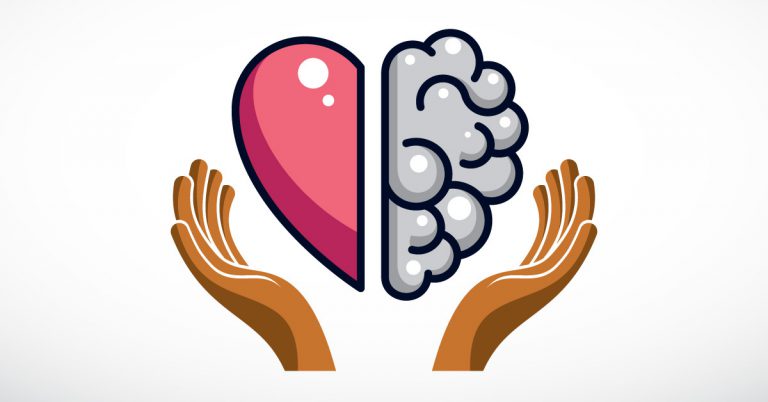When you say the words “critical illness”, the mind often drifts to occurrences of cancer, stroke and heart attack.
The truth is, the term has evolved to cover more than just the 3 dreaded illnesses. Today, a host of heart and neurological illnesses have been identified as early to intermediate stage critical illnesses. These conditions have long-standing impact on our health, and some even lead to progressive degeneration.
When it comes to illnesses of this nature, knowing what they are and seeing the signs early can mean earlier intervention for better quality of life later on. To that extent, we’re looking at some of the less commonly known heart and neurological illnesses to learn more about them.
Key Takeaways
- Cancer, stroke and heart attack are just the tip of the iceberg when we talk about “critical illnesses” today.
- Critical Illnesses can be sudden, but drag on as degenerative illnesses.
- Simple infections can become life-threatening, and leave behind permanent complications.
- Degenerative neurological diseases can have symptoms that are hard to handle over the long-term.
- Heart problems can be silently inherited, before manifesting at unexpected moments.
- Tiq 3 Plus Critical Illness comes with an optional Heart and Neurological Disorder rider for peace of mind.
A simple ear infection can turn into a life-threatening brain infection
Leading an active, healthy lifestyle often means dealing with other people in close quarters, or facing outdoor elements. Imagine kayaking down a river and getting some water in your ears. You don’t know it, but some Streptococcous bacteria has decided to make your ear its home. In most cases, you get an ear infection that you can clear with a visit to the doctor. But in some cases, the bacteria jumps to the brain. That’s when it turns life-threatening.
Meningitis is an inflammation of the protective membranes that cover the brain and spinal cord. In the case of bacterial meningitis, the condition is caused by a host of different bacteria. For an infection to happen, bacteria needs to get there in the first place. There are a few ways this can happen:
- The bacteria ends up in your blood, and crosses the blood-brain barrier.
- If you have an ear or sinus infection, it can spread to your brain.
- Some people are born with weak spots in the protective layers of the brain, and that can let bacteria in.
Even if this neurological illness does not kill, bacterial meningitis can still create serious complications in 20% of those affected by it. These complications include hearing loss, seizures, speech difficulties, poor memory and even amputations caused by sepsis.
Dementia can be a symptom of something more severe
Dementia an intimidating degenerative disease. This disease is commonly considered in a silo, with people often unaware that it can constitute a small part of a larger degenerative neurological syndrome.
A prime example of this is Progressive Supranuclear Palsy (PSP), which shares symptoms with Parkinson’s Disease. This rare, disabling disease occurs when a naturally-occurring protein called Tau isn’t broken down, causing abnormal clumps of brain cells that damage the brain. Balance, mobility, muscle stiffness and speech problems are common, as is dementia.
The key difference between this, and the onset of Parkinson’s disease? PSP typically develops in a person’s mid-60s onwards, much later than Parkinson’s. PSP also worsens rapidly, causing sufferers severe disability within 3 to 5 years.
You could inherit a silent killer
You wouldn’t know it, but feeling tired all the time might not just be the fault of your day job. It could be a result of a genetic inheritance known as cardiomyopathy that you didn’t know about. In many cases, sufferers don’t see the danger coming as this disease shares some symptoms with common malaises related to stressful city living: Fatigue, heart palpitations, lightheadedness, and general tiredness.
Most forms of cardiomyopathy, a condition that causes the heart muscle to have trouble pumping blood, are inherited. A few main types of this condition exist: Dilated, Hypertrophic, Arrhythmogenic, and restrictive.
Among those types, the hypertrophic and arrhythmogenic forms of this condition can be inherited. Often inherited, hypertrophic cardiomyopathy is the thickening of the heart muscle, and can cause sudden deaths, especially in young adult athletes.
The arrhythmogenic form of this disease occurs when the heart beat or rhythm is irregular. This condition is more prevalent in men, and can also be genetically inherited. This condition is also characterized by its often fatal outcomes, with dangerous irregular heart rhythms and Sudden Cardiac Death as possible occurrences.
It pays to be prepared
All the critical illnesses you’ve just read about happen when you least expect them to. These uncanny occurrences drain energy and money from you, leaving you emotionally and financially vulnerable in life. Tiq 3 Plus Critical Illness comes with an optional Heart and Neurological rider, which can support you in the event of a host of heart and neurologically-related critical illnesses, like the dementia that comes with Progressive Supranuclear Palsy.
The best part of this rider? It’s just a small add-on cost that comes with the already affordable critical illness plan that provides superb coverage with little fuss.
Don’t let life have its way with you. Discover the right critical illness insurance for your peace of mind now. Learn more about Tiq 3 Plus Critical Illness today.
[End]
Information is accurate as at 7 September 2023. This policy is underwritten by Etiqa Insurance Pte. Ltd. (Company Reg. No. 201331905K).
Age means the age at next birthday.
This policy is protected under the Policy Owners’ Protection Scheme which is administered by the Singapore Deposit Insurance Corporation (SDIC). Coverage for your policy is automatic and no further action is required from you. For more information on the types of benefits that are covered under the scheme as well as the limits of coverage, where applicable, please contact us or visit the Life Insurance Association (LIA) or SDIC websites (www.lia.org.sg or www.sdic.org.sg).
You should seek advice from a financial adviser before deciding to purchase the policy. If you choose not to seek advice, you should consider if the policy is suitable for you.
As this product has no savings or investment feature, there is no cash value if the policy ends or if the policy is terminated prematurely.
This advertisement has not been reviewed by the Monetary Authority of Singapore.
Tiq by Etiqa Insurance Pte. Ltd.
A digital insurance channel that embraces changes to provide simple and convenient protection, Tiq’s mission is to make insurance transparent and accessible, inspiring you today to be prepared for life’s surprises and inevitabilities, while empowering you to “Live Unlimited” and take control of your tomorrow.
With a shared vision to change the paradigm of insurance and reshape customer experience, Etiqa created the strong foundation for Tiq. Because life never stops changing, Etiqa never stops progressing. A licensed life and general insurance company registered in the Republic of Singapore and regulated by the Monetary Authority of Singapore, Etiqa is governed by the Insurance Act and has been providing insurance solutions since 1961. It is 69% owned by Maybank, Southeast Asia’s fourth largest banking group, with more than 22 million customers in 20 countries; and 31% owned by Ageas, an international insurance group with 33 million customers across 16 countries.
Discover the full range of Tiq online insurance plans here.









